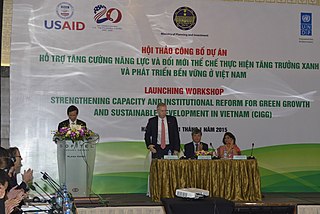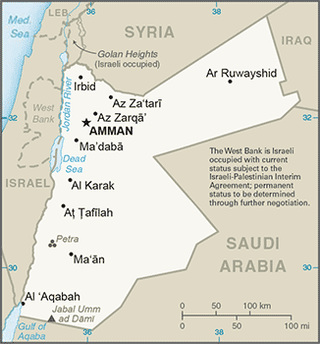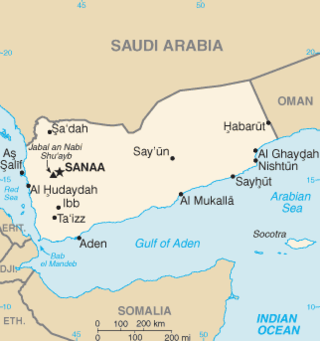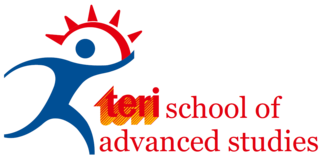
Outcome-based education or outcomes-based education (OBE) is an educational theory that bases each part of an educational system around goals (outcomes). By the end of the educational experience, each student should have achieved the goal. There is no single specified style of teaching or assessment in OBE; instead, classes, opportunities, and assessments should all help students achieve the specified outcomes. The role of the faculty adapts into instructor, trainer, facilitator, and/or mentor based on the outcomes targeted.

Education in Australia encompasses the sectors of early childhood education (preschool) and primary education, followed by secondary education, and finally tertiary education, which includes higher education and vocational education. Regulation and funding of education is primarily the responsibility of the States and territories; however, the Australian Government also plays a funding role.

Vocational education is education that prepares people for a skilled craft as an artisan, trade as a tradesperson, or work as a technician. Vocational education can also be seen as that type of education given to an individual to prepare that individual to be gainfully employed or self employed with requisite skill. Vocational education is known by a variety of names, depending on the country concerned, including career and technical education, or acronyms such as TVET and TAFE.
K–12, from kindergarten to 12th grade, is an English language expression that indicates the range of years of publicly supported primary and secondary education found in the United States and Canada, which is similar to publicly supported school grades before tertiary education in several other countries, such as Afghanistan, Australia, Canada, China, Ecuador, Egypt, India, Iran, the Philippines, South Korea, and Turkey. K–12 refers to the American system which affords authority to local intersectional "districts" which may be specific to a municipality, county, or several regions, depending on population and proximity.

A comprehensive school is a secondary school for pupils aged 11–16 or 11–18, that does not select its intake on the basis of academic achievement or aptitude, in contrast to a selective school system where admission is restricted on the basis of selection criteria, usually academic performance. The term is commonly used in relation to England and Wales, where comprehensive schools were introduced as state schools on an experimental basis in the 1940s and became more widespread from 1965.

Capacity building is the improvement in an individual's or organization's facility "to produce, perform or deploy". The terms capacity building and capacity development have often been used interchangeably, although a publication by OECD-DAC stated in 2006 that capacity development was the preferable term. Since the 1950s, international organizations, governments, non-governmental organizations (NGOs) and communities use the concept of capacity building as part of "social and economic development" in national and subnational plans. The United Nations Development Programme defines itself by "capacity development" in the sense of "'how UNDP works" to fulfill its mission. The UN system applies it in almost every sector, including several of the Sustainable Development Goals to be achieved by 2030. For example, the Sustainable Development Goal 17 advocates for enhanced international support for capacity building in developing countries to support national plans to implement the 2030 Agenda.

Education in Nepal has been modeled on the Indian system, which is in turn the legacy of the old British Raj. The National Examinations Board (NEB) supervises all standardized tests. The Ministry of Education is responsible for managing educational activities in Nepal. The National Center for Educational Development (NCED) is Nepal's teacher-training body.

The education system of the Hashemite Kingdom of Jordan includes basic, secondary, and higher education and has dramatically evolved since the establishment of the state in the early 1900s. The role played by a good education system has been significant in the development of Jordan from a predominantly agrarian to an industrialized nation over time.
Education in the Philippines is compulsory at the basic education level, composed of kindergarten, elementary school, junior high school, and senior high school. The educational system is managed by three government agencies by level of education: the Department of Education (DepEd) for basic education; the Commission on Higher Education (CHED) for higher education; and the Technical Education and Skills Development Authority (TESDA) for technical and vocational education. Public education is funded by the national government.
Qatar University is a public research university located on the northern outskirts of Doha, Qatar. It is the only public university in the country. The university hosts ten colleges – Arts and Sciences, Business and Economics, Education, Engineering, Law, Sharia and Islamic Studies, Pharmacy, College of Health Science, College of Medicine, College of Dental Medicine, College of Pharmacy and College of nursing.

The Technical Education and Skills Development Authority serves as the Philippines' Technical Vocational Education and Training (TVET) authority. As a government agency, TESDA is tasked to both manage and supervise the Philippines' Technical Education and Skills Development (TESD). Its goals are to develop the Filipino workforce with "world-class competence and positive work values" and to provide quality technical-educational and skills development through its direction, policies, and programs.

Yemen ranked 150 out of 177 in the 2006 Human Development Index and 121 out of 140 countries in the Gender Development Index (2006). In 2005, 81 percent of Yemen's school-age population was enrolled in primary school; enrollment of the female population was 74 percent. Then in 2005, about 46 percent of the school-age population was enrolled in secondary school, including only 30 percent of eligible females. The country is still struggling to provide the requisite infrastructure. School facilities and educational materials are of poor quality, classrooms are too few in number, and the teaching faculty is inadequate.
Tony Vinson was an Australian academic, regarded as "one of Australia's leading social scientists and outspoken public intellectuals". His career spanned the disciplines of social work, social policy, psychology, education, public administration and social research.

The TERI School of Advanced Studies (TERI) is a higher education institute in New Delhi, India which specializes in the field of sustainable development. It was established in 1998 by The Energy and Resources Institute. In 1999, the TERI School of Advanced Studies was granted the 'Deemed to be University' status by the Indian University Grants Commission.

K M Baharul Islam is presently the Chairperson of Centre of Excellence in Public Policy and Government at Indian Institute of Management Kashipur. He served as the Dean (Academics) during 2019-2021 at the same institute. He was elected as a Fellow of the Royal Asiatic Society of Great Britain and Ireland on 18 March 2020. Since October 2021, he is a Visiting Professor at the London School of Economics.
Helen Marion Nugent is a leading Australian company director, businesswoman and former academic.
The Department of Technical Education (DTE) is a higher education governance body under the government of Kerala, India. It is a part of the higher education department and is managed by the Minister of Education. The department advises the government on matters dealing with higher education. It manages the working and activities 9 government engineering colleges, 3 aided engineering colleges, 49 polytechnic colleges, three colleges of fine arts, 39 technical high schools, 17 government commercial institutes, 42 Government Institute of Fashion Designing (GIFD) Centers and four vocational training centers.
Santosh Mehrotra is a development economist, whose research and writings have had most influence in the areas of labour, employment, skill development, on the relationship between human development and economic growth, child poverty, and the economics of education. He was an economic adviser in the United Nations system in New York City, Italy, and Thailand (1991–2006), and technocrat in the government of India (2006–2014), apart from making contributions to academic research since the mid-1980s. He has also in recent years established a reputation as an institution-builder in the field of research in India, despite facing difficult odds. He brings a combination of professional experience: with the Indian government as a policy maker and adviser, with international organisations as a technical expert, having lived on three continents and travelled to 63 countries providing technical advice to governments; and as an academic whose research work has been translated into French, Spanish, Portuguese, Italian and German.
Eileen Baldry is an Australian criminologist and social justice advocate. She is Deputy Vice-Chancellor Equity Diversity and Inclusion and Professor of Criminology at the University of New South Wales (UNSW).

Barbara Ann Pocock AM is an Australian politician who was elected at the 2022 Australian federal election to become a Senator representing South Australia from July 2022. She was officially declared elected by the Australian Electoral Commission on 15 June 2022. Previously, she ran as the Greens candidate for the Division of Adelaide in the 2019 Australian federal election. She is a professor and economist.











